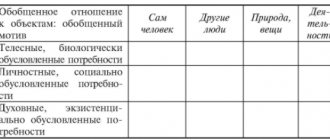Briefly about the theory of moral development
How is morality formed in children? Many scientists have asked this question. But in the modern world, only Lawrence Kohlberg's theory has achieved wide recognition.
Kohlberg used the dilemma method. He projected onto children situations in which the young participants in the experiment had to make difficult moral choices.
As a result, the idea that children develop spontaneous morality, not tied to any numbers or indicators, was rejected.
Kohlberg identified three levels of development of moral consciousness:
- Age from 4 to 10 years. This level was called "pre-moral". In the period from four to ten years, a child puts his own benefit and safety at the forefront. At the first stage of development, he seeks to gain approval in order to escape punishment. And the correct tactics of behavior are easy to build with the help of tips (social norms). At the second stage, the child is already focused on potential rewards for good behavior. The kid thinks not about punishment, but about benefit.
- Age from 10 to 13 years. The level is called conventional. During this period, the child already begins to understand the rules and values accepted by society. At the first stage, the measure of moral success is people from one’s close circle. Shame and the reluctance to disappoint authority figures pushes people to follow the rules. At the second stage, the child already understands the reasons why the restrictions were introduced. He also sees them as a way to assert and protect his own rights.
- Age after 13 years. A teenager creates his own system of moral values, adjusting the template accepted by society.
At the first stage, a lot of attention is paid to those norms that help to survive and maintain peace in society. At the second stage, a person already has stable moral principles, which he adheres to despite external influences and circumstances. If necessary, the individual will be able to fight back and endure the disapproval of the crowd if the behavior of the crowd seems unfair.
Peculiarities
Of course, at the dawn of the emergence of motives that determine the behavior of an individual, there were still mundane life and material benefits. However, the community, and after it the morals, quickly progressed, pushing any of the participants to fully adapt to the team and build long-term humanistic relationships.
Moral standards of behavior are so firmly established in people’s minds that they are no longer a forced survival tactic, but generally accepted motives of human behavior, an emotional need. The norm becomes:
- moral and emotional sympathy for one's neighbor;
- compassion;
- willingness to always come to the aid of those in trouble.
A person who spiritually and physically supported the members of his community could himself count on the same attitude, thanks to which community ties were strengthened, and the group’s resistance to various negative influences increased.
Features of moral education
Moral education involves going through the first two stages of developing moral behavior before the child reaches seven years of age. Of course, the possibility of developing moral feelings and emotions at a later age cannot be ruled out, but in this case the process of developing morality will be much more difficult.
The next feature, and even complexity, of the process of moral education is the possible difference in the moral principles of educators. Moral education occurs comprehensively: in the family, in an educational institution and in society. It is very good if the moral principles in these areas of upbringing are the same, then it will not be difficult to achieve good effectiveness in raising a child, otherwise he simply ends up in a situation of dual morality.
Definition
Moral education is a special type of education in the general process of personal education. This process involves the complete and continuous immersion of the teacher in the child’s life, his support at the right moment. This process is continuous and lasts throughout adult life from birth.
Contents and methods of moral education of children of early preschool age
Success in raising a free personality , and this is exactly the kind of personality we want to get, depends on the initial methodological position from which we look at the child. If you ask any person (be it a mother, father, teacher, etc. , whether he wants us to raise a happy child , he will probably be surprised at first, and then answer in the affirmative. Never in our domestic preschool of raising a happy child been set . Or maybe a young teacher should think about this? Think about how to change the view of the child and his role in his development. In American pedagogy there is such a principle - “ raise a happy personality ." A person should be because he was born, because he lives .Domestic concept: when raising a child , we seem to build a perspective for him: if you obey your elders, if you study well, etc., you will become a happy person. But the Americans “turned everything upside down”: you were born a happy person and therefore can study well, It's fun to live, you'll succeed, you can handle everything. What moral qualities should a child have in order to feel happy? And is it really possible to contribute to the formation of a happy personality through pedagogical influences? There are many qualities that can be identified that make up the image of a happy child. A happy child is confident in himself, he communicates easily and with pleasure, openly and trustingly with people - adults and children. He is optimistic and takes everything with joy . He is inquisitive, etc. But to raise such a child if both parents and educators are imbued with deep respect for the child’s personality and teach him something very important: self-esteem and the ability to live among people.
The content of moral education of preschoolers includes the following semantic blocks:
— education of humanity as a personality quality;
— education of collectivism;
— formation of the principles of citizenship and patriotism;
- formation of an attitude towards work and diligence.
Education of humanity is the formation of such a moral quality , which implies sympathy, empathy, responsiveness, empathy.
The core and indicator moral education is the nature of his attitude towards people, nature, and himself. Research shows that such attitudes can develop in children as early as preschool age . The basis of this process is the ability to understand another, to transfer the experiences of another to oneself.
The formation of a humane attitude towards people and nature begins in early childhood. With systematic work aimed at nurturing a humane attitude of preschoolers towards the people around them and nature, children develop humanism as a moral quality . In other words, humanism is included in the structure of personality as its qualitative characteristic.
It should be emphasized that the education of humane feelings and attitudes is a complex and contradictory process. The skills to sympathize, empathize, rejoice, not envy, and do good sincerely and willingly are only developed in preschool age .
The education of collectivism as a moral quality of a preschooler is based on the formation of positive, friendly, collective relationships.
The main and only function of the children's team is educational : children are included in activities that, in terms of their goals, content and forms of organization, are aimed at shaping the personality of each of them.
For the education of collective relationships, the emergence of such a phenomenon as friendship has a meaning-forming significance. Friendship, as the closest connection between children, accelerates the process of effective awareness of social relationships. Mutual assistance and responsiveness are significant characteristics of collective relationships.
Who is a moral person?
What is moral behavior in a modern highly competitive society? There is hardly any need to consider this concept as a complete renunciation of oneself and one’s own interests. But we can say for sure that a highly moral person is definitely devoid of gross egoism, arrogance and greed. Such an individual seeks the benefit of others and thinks about the good for the whole society. By showing altruism, this person deprives manipulators of the opportunity to control themselves.
Good deeds and humane attitudes literally save lives. A passionate conscience and high ideals do not allow evil to extinguish the faith in the bright future of humanity, which is present in each of the people from birth.
Looking at a highly moral “good” person, many may think that this is some kind of gift from above. However, there are many examples where purposeful work on oneself, one’s worldview and mistakes led to outstanding results.
Conscience and morality need to be developed. Giving up base impulses and following high ideals invariably transforms a person.
Relativism, what is it?
Moral relativism is a position whose proponents deny the possibility of the existence of absolute evil or good.
According to moral relativism, morality is not tied to universal standards.
Ethical behavior is only a variable value that changes as a result of changing scenery (culture, participants in the action, nuances of the situation, etc.).
Relativism can be viewed in two ways:
- the concepts of “good” and “evil” are conditional in themselves,
- public morality is conditional relative to unconditional standards of good and evil.
The essence and goals of moral education
Definition 1
Moral culture is a certain level of assimilation and observance by members of society of its inherent moral norms and rules. Moral culture is expressed by customs, norms of behavior, mores, value orientations, assessments of good and evil, understanding of happiness, heroism, love and friendship.
The goal of moral education is realized in the entire content of educational activity, which is a two-way process of relations between the subject and the object of education.
Moral education as a specific process consists of communicating to students certain information regarding proper behavior. Responsibility for behavior is developed on the basis of knowledge about how a person should act in certain conditions. Moral norms are acquired spontaneously in the everyday communication of people. Moral education gives this process some target orientation and systematicity thanks to ethical education.
Are you an expert in this subject area? We invite you to become the author of the Directory Working Conditions
Definition 2
Morality is a characteristic of a person that combines such qualities and properties as kindness, discipline, decency and collectivism.
The result of the holistic process of moral education is the formation of a morally integral personality in the unity of its consciousness, moral feelings, conscience, will, skills, habits and socially valuable behavior.
Moral education consists of:
- formation of consciousness of connection with society, dependence on it and the need to coordinate one’s behavior with the interests of society;
- familiarization with moral ideals, requirements of society, as well as evidence of their reasonableness and legality;
- transforming moral knowledge into moral beliefs, creating a system of these beliefs;
- formation of stable moral feelings, high behavioral culture as one of the main manifestations of a person’s respect for the people around him;
- formation of moral habits.
Finished works on a similar topic
Course work Formation of a moral culture of the individual 460 ₽ Abstract Formation of a moral culture of the individual 250 ₽ Examination Formation of a moral culture of the individual 250 ₽
Receive completed work or specialist advice on your educational project Find out the cost
Moral education of an individual is a complex and multifaceted process, including pedagogical and social aspects. At the same time, moral education is an autonomous process.











